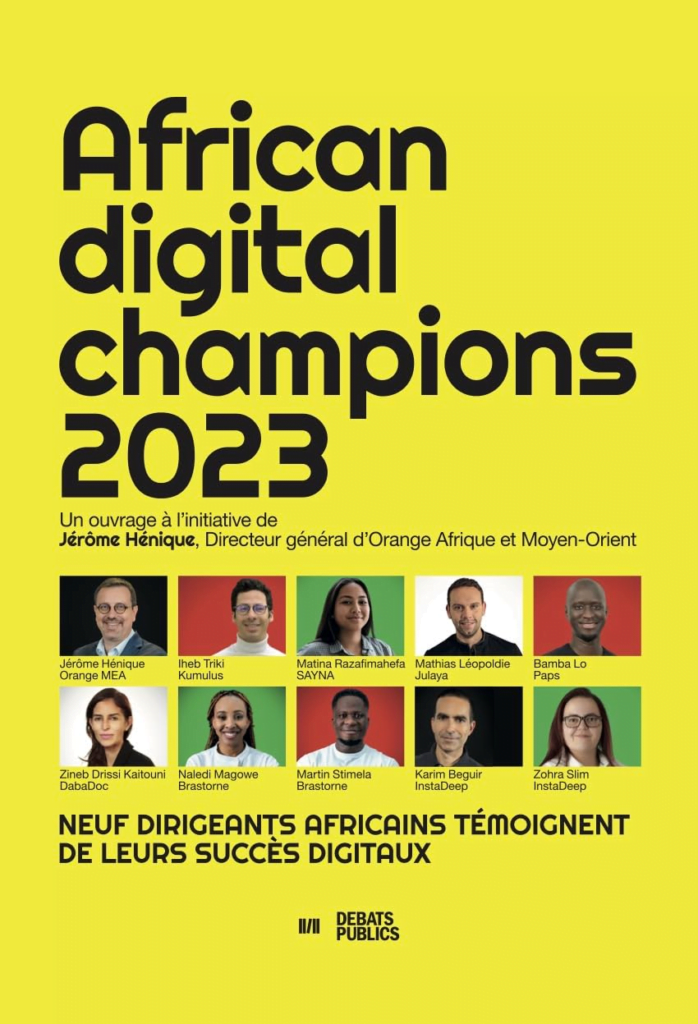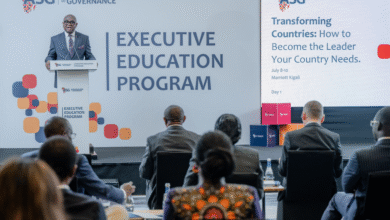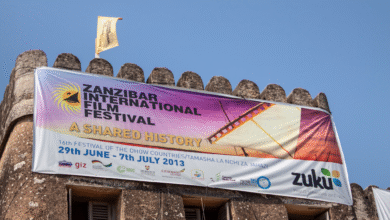

Orange can be proud of its record on the ground. Since the creation of the first Orange Digital Centre (ODC) in Tunisia in 2010, the initiative has created a network of twenty-five ODCs – seventeen in Africa and the Middle East and eight in Europe – enabling the exchange of experience and expertise between the two continents. A powerful network that the CEO of Orange Africa Middle East, Jérôme Hénique, wanted to highlight through the book African Digital Champions 2023, published last October. A series of African success stories supported by the French company. « The aim is to highlight the impressive career paths and success stories of nine innovative African startups, led by inspiring men and women, to inspire others to follow in their footsteps, » explains Jérôme Hénique. He adds: « We need to encourage young people through these models and give hope to those who are already in the entrepreneurial process.
What the digital entrepreneurs featured in this book have in common is that they have developed tools to improve people’s daily lives. For example, Zineb Drissi Kaitouni, a Moroccan entrepreneur, CEO and co-founder of Dabadoc in 2014, which offers an online service for booking appointments with healthcare professionals and managing doctors’ surgeries, as well as exclusive teleconsultation solutions. Or Mathias Léopoldie, who, with Charles Talbot, founded the startup Julaya in Côte d’Ivoire. Designed for businesses, particularly SMEs, Julaya centralizes all financial services, such as salary payments via mobile money, on a single platform.

Another thing these startups have in common is that almost all of them have been supported by Orange as part of the ODCs, a kind of incubator that centralizes all services. « The strength of the ODCs lies in the fact that they are physical structures equipped with the latest technology that support young people throughout the value chain, from innovation to entrepreneurship, » explains the CEO. In short, a tailor-made technology ecosystem. « Our main lesson, after supporting more than 200 startups, is that with the right environment, the chances of success are multiplied by five or ten, » says Jérôme Hénique. This support is also invaluable when it comes to finding investment, as 87% of African startups have no access to funding, according to figures published in 2019 by the French Development Agency (AFD).
The book places Orange’s actions in the context of the times and enables it to prepare for the future. According to the international network of high-impact entrepreneurs (Endeavor, 2022), the digital economy in Africa is expected to increase sixfold by 2050, reaching $712 billion, compared to $115 billion today. In terms of job creation, the International Monetary Fund (IMF) estimates that sub-Saharan Africa needs to create 20 million jobs over the next two decades to absorb new labor market entrants. Buoyed by the success of the ODCs – 72,000 young people, 55% of them women, will have been trained by 2023 – Orange is keen to maintain the momentum and develop its strategy. « ODCs have mainly been set up in big cities. But we know that the provinces also have needs. That’s why we’re going to develop ODC clubs in the regions, » says Jérôme Hénique. So far, sixteen clubs have been set up in partnership with local universities. The aim is to increase this number to thirty-seven by the end of 2024.







